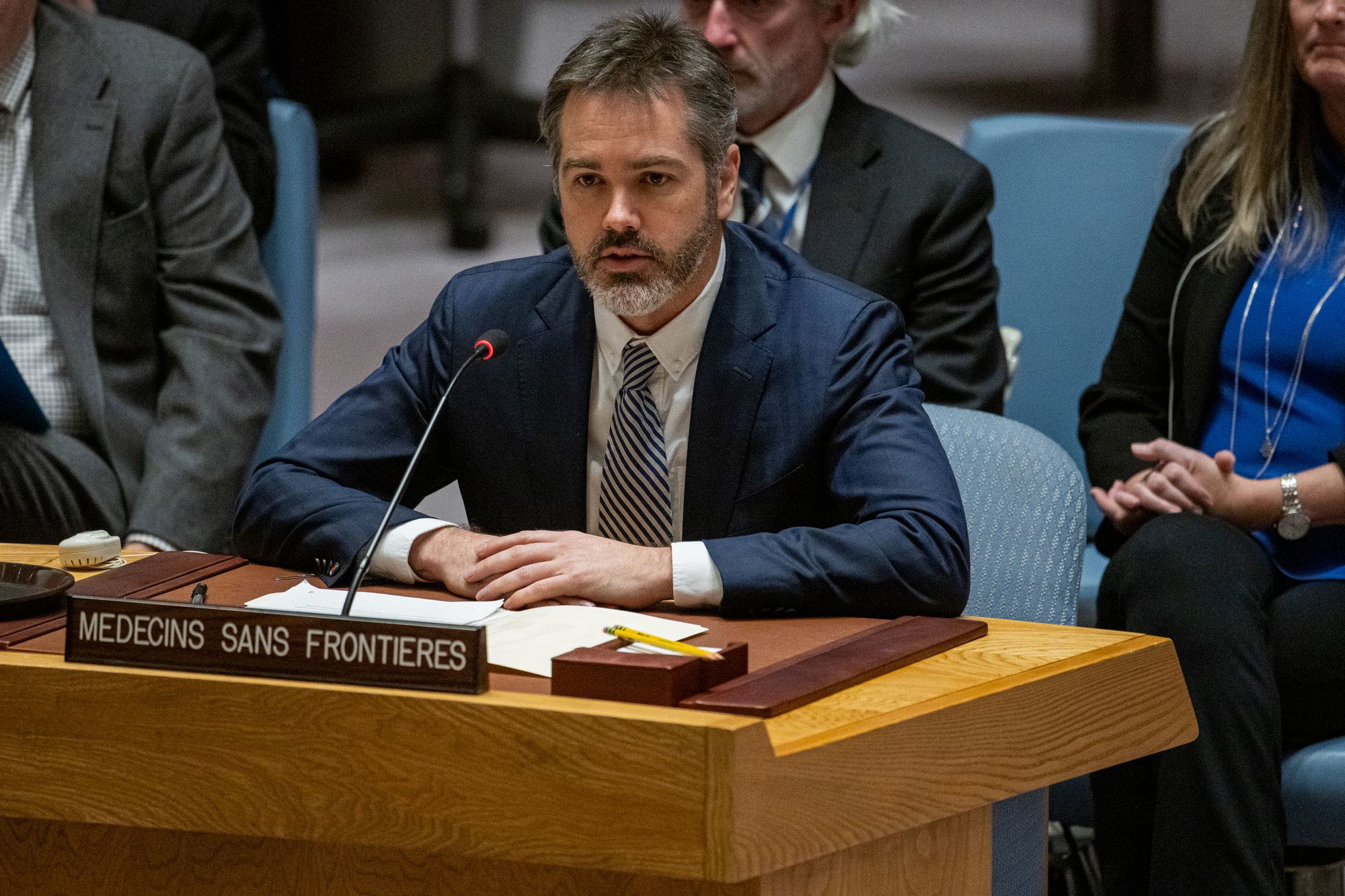
Doctors Without Borders: The War in Sudan Is a War on the People
moatinoon
Christopher Lockyear, Secretary General of Doctors Without Borders (MSF), has accused the Rapid Support Forces (RSF), the Sudanese Armed Forces (SAF), and other parties to the conflict of not only failing to protect civilians but actively worsening their suffering. He stressed that the war in Sudan "is a war on the people, and this fact is becoming clearer by the day."
In a briefing before the United Nations Security Council on Thursday, he stated that violence against civilians is driving humanitarian needs, emphasizing that this "is not just a secondary consequence of the conflict, but a fundamental aspect of how this war is being waged across Sudan—a war fueled from outside."
Lockyear added that the devastating impact of the war is being exacerbated by restrictions on humanitarian aid, whether "deliberately imposed, caused by bureaucratic paralysis, insecurity, or the collapse of governance and coordination."
A Complex Humanitarian Operation
While some progress has been made in certain areas, the scale of humanitarian needs remains overwhelmingly vast, Lockyear said. "Despite the evident urgency of the situation, delivering aid in Sudan remains extraordinarily complex—sometimes deliberately so."
He pointed to bureaucratic obstacles imposed by the RSF’s so-called "Sudanese Relief and Humanitarian Operations Agency," which has forced relief organizations operating in RSF-controlled areas into an "impossible choice."
"Either they comply with the agency’s demand to formalize their presence—risking expulsion by authorities in Port Sudan—or they refuse and face being shut down by the agency. Either way, life-saving aid hangs in the balance. Sovereignty cannot continue to be exploited as a pretext to restrict humanitarian assistance. Aid and relief agencies cannot continue to be used as tools for extracting legitimacy."
A Crisis Demanding a Radical Shift
Lockyear criticized the United Nations Security Council’s repeated calls for an end to the conflict, the protection of civilians, and unhindered humanitarian access, arguing that these appeals "have had no impact."
"While statements are made in this hall, civilians remain invisible, unprotected, bombed, besieged, raped, displaced, and deprived of food, medical care, and dignity. The humanitarian response is faltering—paralyzed by bureaucracy, insecurity, hesitation, and what may become the largest withdrawal of humanitarian funding in history. For my colleagues in Khartoum, in Tawila, in Nyala—for our patients across Sudan—the failure of this Council to translate its demands into action feels like abandonment in the face of violence and deprivation."
Lockyear criticized the Jeddah Declaration, saying it "should have been a turning point, but instead has become little more than a convenient rhetorical shield—invoked to express concern while absolving those in power from taking real action."
He called for a new pact that safeguards the survival and dignity of the Sudanese people, overseen by independent monitoring and backed by a robust accountability mechanism to ensure all parties to the conflict uphold their commitments.
"The crisis in Sudan demands a radical shift away from the failed approaches of the past. Millions of lives depend on it."

